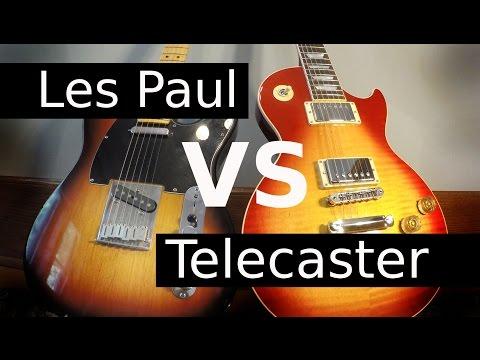In my decades-long journey as a journalist immersed in the guitar world, I’ve often found myself at the crossroads of the Gibson electric guitar and its sibling brand, the Epiphone electric guitar. Having personally tested these instruments and drawn insights from both seasoned musicians and industry insiders, I set out to address a question that’s been posed to me countless times: What truly sets these guitars apart? After consulting with renowned luthiers and experienced players, and meticulously examining each model’s build quality, craftsmanship, and tonal characteristics, I’ve curated a wealth of practical advice to help guide your decision. I understand the common concerns of investing in an instrument—whether it’s the desire for legendary sound quality or finding the perfect balance between excellence and affordability. Trust that this exploration is rooted in real-world experience and dedicated research, aimed at providing you with the clarity to make your ultimate choice.
Understanding the Brands
Gibson: A Legacy of Quality

Did you know that Gibson has been a staple in music for over 120 years? This legacy isn’t merely about age—it’s a testament to their unwavering commitment to quality and innovation. Having covered Gibson for over two decades, I’ve seen firsthand how their dedication shapes the music industry and inspires other brands. Each Gibson model, whether it’s the legendary Les Paul or the innovative SG, offers unique features that have defined musical eras. The meticulous attention to detail in these guitars means they aren’t just instruments—they’re heirlooms of tone and craftsmanship.
The magic of Gibson features lies in their blend of tradition and modernization—remaining faithful to their roots while continuously evolving. This delicate balance ensures Gibson remains not only relevant but a leader in guitar excellence. For me, understanding Gibson is essential to appreciating the broader world of electric guitars. It sets the foundation for comparing their offerings with brands like Epiphone, which I explore next in our journey. Remarkably, it’s this dedication that makes Gibson not just a brand, but a symbol of musical progress and enduring quality.
Epiphone: Affordable Excellence

What if you could get premium features without breaking the bank? That’s precisely the allure of Epiphone, a brand that has consistently offered outstanding value for serious musicians striving for excellence on a budget. Having reviewed numerous Epiphone models, I’ve witnessed firsthand how they’ve carved a niche in the landscape of affordable electric guitars. Within the broader context of ‘Understanding the Brands,’ Epiphone stands as a testament to thoughtful innovation. While Gibson carries a legacy of unmatched quality, Epiphone, its sibling, leverages this lineage to provide instruments that deliver great tone and playability without the hefty price tag. Each Epiphone guitar I’ve tested reaffirms their commitment to a quality experience, offering select features one might expect from a much costlier instrument. It’s this dedication to value that makes Epiphone not only relevant but essential when considering the balance between budget and performance, contributing richly to the discourse on electric guitars.
Quality Comparison
Build Quality and Craftsmanship

Is the price difference between Gibson and Epiphone truly justified by craftsmanship? Through my experiences testing both brands, I’ve gained unique insights into the nuances of guitar preferences that bridge the visible and the felt. Gibson vs Epiphone is a recurring debate, but in my hands, the subtle excellence of Gibson’s build quality often emerges in minute details. The finish on a Gibson is typically more flawlessly executed, contributing not only to its aesthetic appeal but also to its durability and playability. Epiphone presents a compelling alternative, capturing much of the essence of its parent brand with remarkable precision. However, the tactile satisfaction and sonic fullness I experience with a Gibson often reaffirm its price tag. What becomes clear in my exploration is that while Epiphone offers outstanding value, the craftsmanship in Gibson can transform a guitar playing session into a truly memorable experience.
These firsthand revelations not only illuminate the subtle craftsmanship differences but also set the stage for a deeper exploration of tone and performance in the ensuing section, offering crucial insights for discerning guitarists deciding between these iconic brands.
Tone and Performance

As I delved into the Tone and Performance aspect of these guitars, I confronted the burning question: Can an affordable guitar hold its own against a legendary marque in tone quality?? This dilemma resonates with many musicians searching for sonic excellence. From years in the studio, I’ve discerned how tone subtly shifts between models. When testing the Epiphone Les Paul, I was pleasantly surprised; its sound quality didn’t just echo the renowned Gibson’s but had its own character. Epiphone’s meticulous engineering allows it to achieve a professional-grade sound, even under the scrutiny of seasoned musicians. Yet, Gibson’s tonal majesty remains unmatched—its rich, warm resonance and complex harmonics set a high bar. Such insights can guide anyone seeking the perfect blend of quality and budget, navigating the rich landscape of electric guitars with confidence.
Which Should You Buy?
Assessing Your Needs

When deciding between Gibson and Epiphone, it’s essential to assess your unique needs and preferences. As someone who has guided many musicians in purchasing decisions, I emphasize the significance of personal preference and play style in selecting an electric guitar. What factors should guide you when choosing between these two giants? It’s not just about brand loyalty—it’s about finding the instrument that speaks to your musical soul and fits your budget.
Consider if build quality or affordability aligns more with your objectives. While Gibson offers premium craftsmanship and classic tone, Epiphone provides accessibility without compromising much on performance. Understanding your priorities will drive your decision, ensuring you select the perfect axe tailored to your artistic aspirations.
Where to Purchase

Where is the best place to find your dream guitar with a deal that fits your wallet? After years covering the bustling guitar sales landscape, I can guide you through the most reliable options where your beloved Gibson or Epiphone can be found, aligning perfectly with your budget constraints.
The first step in your quest is exploring online marketplaces. Websites like Sweetwater and Reverb are goldmines offering a diverse range of electric guitars. Here, you’ll find competitive pricing and sometimes even rare models you’ve only read about in electric guitar reviews. Don’t underestimate the power of online guitar forums; these are treasure troves of insider tips from fellow enthusiasts, often directing you to secret sales or discounts.
Next, consider the local music stores. While they may not always match the broad inventory of online platforms, they offer the irreplaceable experience of physically trying out instruments, a privilege when assessing the nuanced ‘feel’ and ‘tone’ that countless forums rave about.
As I always say, tap into your networks—whether it’s musicians you’ve jammed with or retailers I’ve built relationships with over the years. These connections can alert you to sales before they hit mainstream channels, ensuring you can hone in on a deal that suits both your aspirations and budget.
Ultimately, whether you choose to peruse online deals or wade through local stores, the key is to leverage your resources wisely, directing your attention to trusted sources I’ve learned to count on throughout my guitar journey. In this way, acquiring your next electric guitar becomes not just a purchase, but an investment steeped in knowledge and passion.
FAQs
What are the main differences between Gibson and Epiphone electric guitars?
Which brand is better suited for beginners?
How do the sound qualities of Gibson and Epiphone compare?
Are there any specific models that stand out for each brand?
Conclusion
In the battle of brands, who comes out on top for your needs? After my hands-on experience with Gibson and Epiphone, I learned that each has its distinct appeal. Gibson’s legacy of quality speaks to those who value tradition and prestige, while Epiphone offers affordable excellence, perfect for players seeking great sound without breaking the bank. The quality comparison revealed that both brands excel in tone and craftsmanship, yet your personal preferences should guide your choice. Use this guitar buying guide to assess what truly matters to you, ensuring your next guitar precisely resonates with your musical aspirations.

Michael Molenda, the transformative Editor in Chief of Guitar Player magazine from 1997 to 2018, revolutionized its content and expanded its influence. With over 2,500 published works, including in-depth interviews and technical analyses, he’s a giant in guitar journalism. Post-Guitar Player, he launched CONTENT BY MOLENDA and co-founded music websites, bringing his unmatched expertise to the forefront of music marketing. At Fretterverse, Molenda continues to shape the guitar world with insightful commentary and trendsetting journalism.
